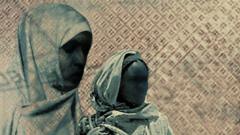A Paris court’s ruling marks a significant legal action against those denying the Rwandan genocide of 1994.
French Court Convicts Author for Rwandan Genocide Denial

French Court Convicts Author for Rwandan Genocide Denial
Charles Onana and his publisher face fines under French law prohibiting genocide denial.
In a groundbreaking legal decision, a Paris court has convicted French-Cameroonian author Charles Onana and his publisher, Damien Serieyx, for denying the occurrence of the Rwandan genocide in 1994. This ruling may signal the first instance of such a conviction under French law, which penalizes the denial of recognized genocides.
Onana, known for his controversial book "Rwanda, the Truth About Operation Turquoise — When the Archives Speak," has been fined close to $15,000 and ordered to compensate three human rights organizations that brought forward the lawsuit against him and Serieyx, for over $11,000 collectively. Upon learning the court's decision, both parties signified their intention to appeal.
The court's judgment emphasized the defendants' culpability for "publicly challenging the existence of a crime against humanity." Onana explicitly claimed in his published work that the widely acknowledged genocide did not take place and dismissed any allegations of France's role in it. The court pointed to 19 specific passages within his book that it deemed in contravention of the French law that governs genocide denial.
One notably controversial assertion he made was that the idea of a Hutu-led conspiracy orchestrating a genocide in Rwanda was among "the biggest scams of the 20th century." He consistently placed the term "genocide" within quotation marks, indicating his skepticism towards the classification of events that led to the loss of countless lives.
Furthermore, Onana stated that to maintain discussions about a supposed genocide plan from the Hutus or to characterize the Rwandan Patriotic Front's endeavors as a mere rescue operation was an "hoax and a falsification of history."




















